By LAUREN PUTRINO and LAUREN EFFRON
“The Sound of Music” has remained one of the most iconic films in history since it was released 50 years ago.
It’s this Rodgers and Hammerstein classic that brought us songs like “Do
Re Mi” and “My Favorite Things,” and told the story of a nun named
Maria who dreamed of a different life, and became a part of the singing
von Trapp family, all of which are ingrained in American culture.
But there are a few scenes from the 1965 film that were never shown,
titles that were changed, and lyrics Oscar Hammerstein struggled with,
which could have made the film completely different than the version we
know and love today.
Here are a few things the musical creators, and then later filmmakers, changed about “The Sound of Music.” Tune in to “The Untold Story of ‘The Sound of Music,’” a Diane Sawyer "20/20" special, Wednesday, March 18, at 10 p.m. ET.
1. The Title Was Originally Called 'Love Song'
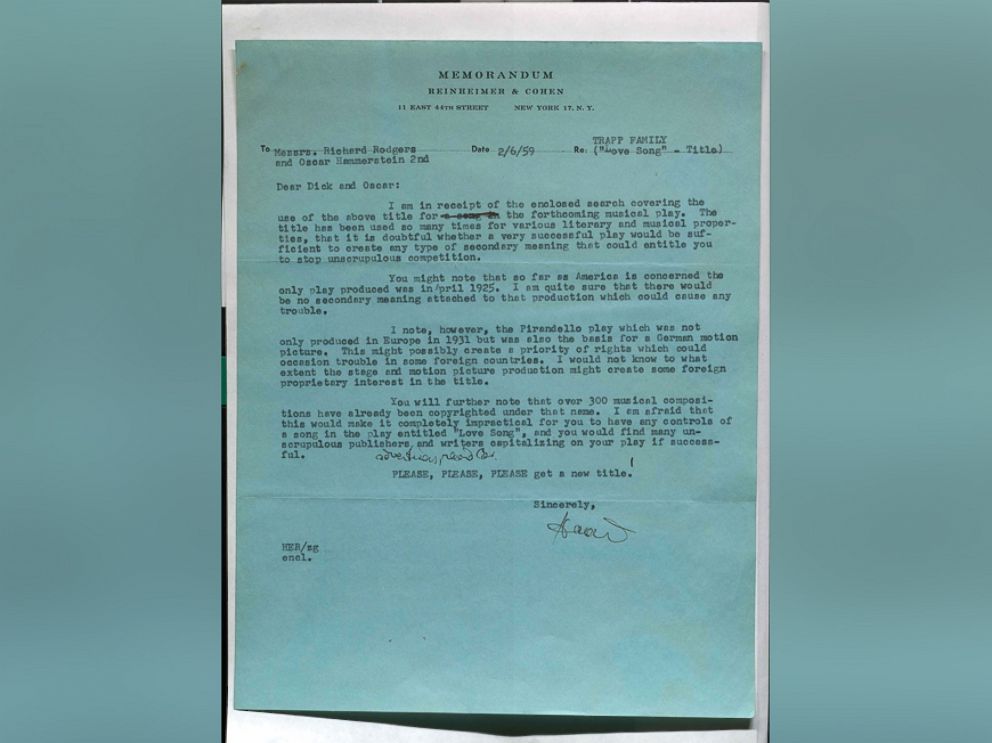
In a telegram dated Feb. 6, 1959, lawyers for the original play pleaded
with Rodgers and Hammerstein to "PLEASE, PLEASE, PLEASE get a new
title!" for "their forthcoming musical play" because of copyright issues
over the name, "Love Song."
"Over 300 musical compositions have already been copyrighted under that name," the telegram reads.
So the name was changed to "The Sound of Music."
2. 'My Favorite Things' Originally Had a Different Title and Lyrics
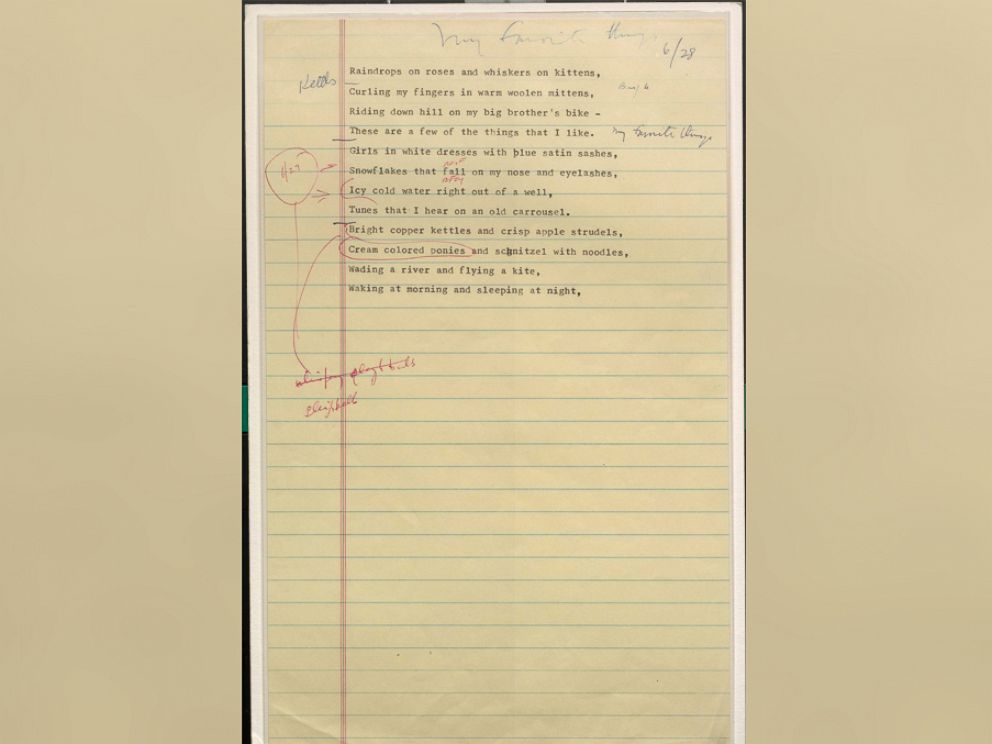
When Hammerstein was writing the song, "My Favorite Things," he started
off by literally writing down a list of some of his favorite things.
On one of Hammerstein early notes about the song, he wrote, “Raindrops
on roses and whiskers on kittens, curling my fingers in warm woolen
mittens, riding down a hill on my big brother’s bike, these are a few of
the things that I like.”
Next to “curling” is the handwritten word “kettle,” and next to "like"
is the handwritten phrase, "my favorite things." Today, we know the
lyrics as “Raindrops on roses and whiskers on kittens, bright copper
kettles and warm woolen mittens, silver white winters that melt into
spring, these are a few of my favorite things.”
The name of the song was also originally called “Good Things,” and
Hammerstein crossed it out and changed it to “My Favorite Things.”
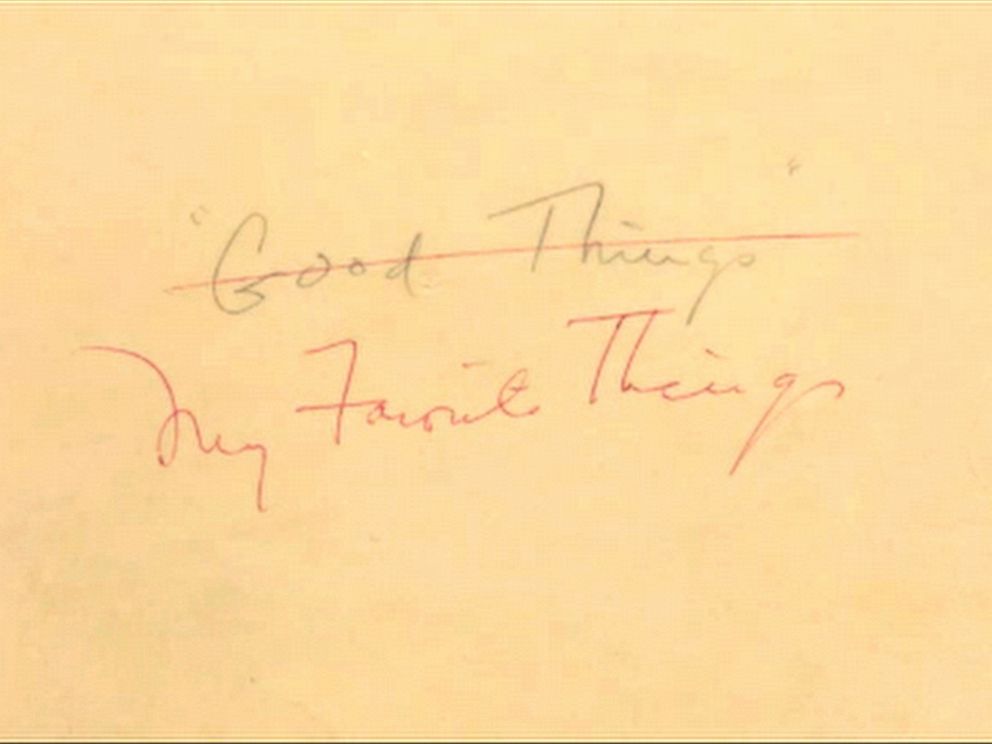
3. 'Do Re Mi' Was Originally Titled 'First Singing Lesson'
But was also later changed.
In the original play, "Do Re Mi" was the first song Maria sang to the
von Trapp children, but for the movie, filmmakers made “My Favorite
Things” the first song she sang with them instead. Originally, “My
Favorite Things” was sang as a duet between Maria and the Mother Abbess.
4. Oscar Hammerstein Struggled With a Lyric for 'Sol'
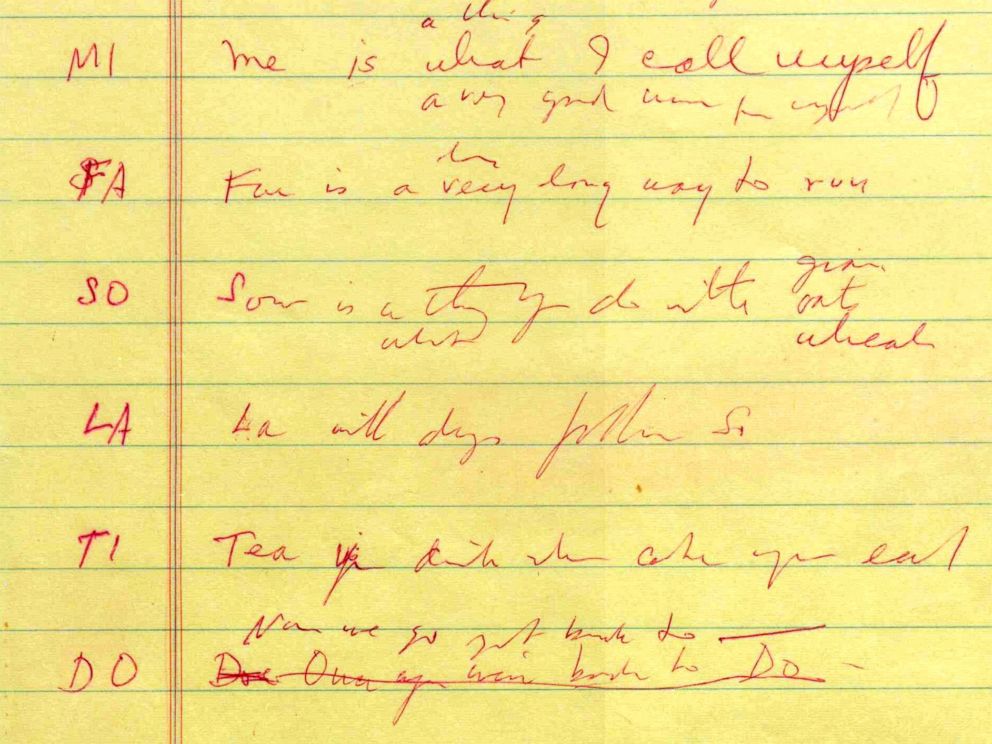
When writing the song, “Do Re Mi,” Hammerstein wrote lyrics for each
beat such as, “Do, a deer, a female deer, Re, a drop of golden sun,” but
he struggled to come up with a lyric for the beat, “Sol,” which is
pronounced “So,” but written both ways in his notes.
“So is a thing you do with grain, oat wheat,” reads one of Hammerstein’s
handwritten notes about the song, as he tried out different lyrics.
It took him four days to come up with the lyric as we know it today: “So, a needle pulling thread.”
5. The 'Do Re Mi' Scene Was Supposed to Include a Maze
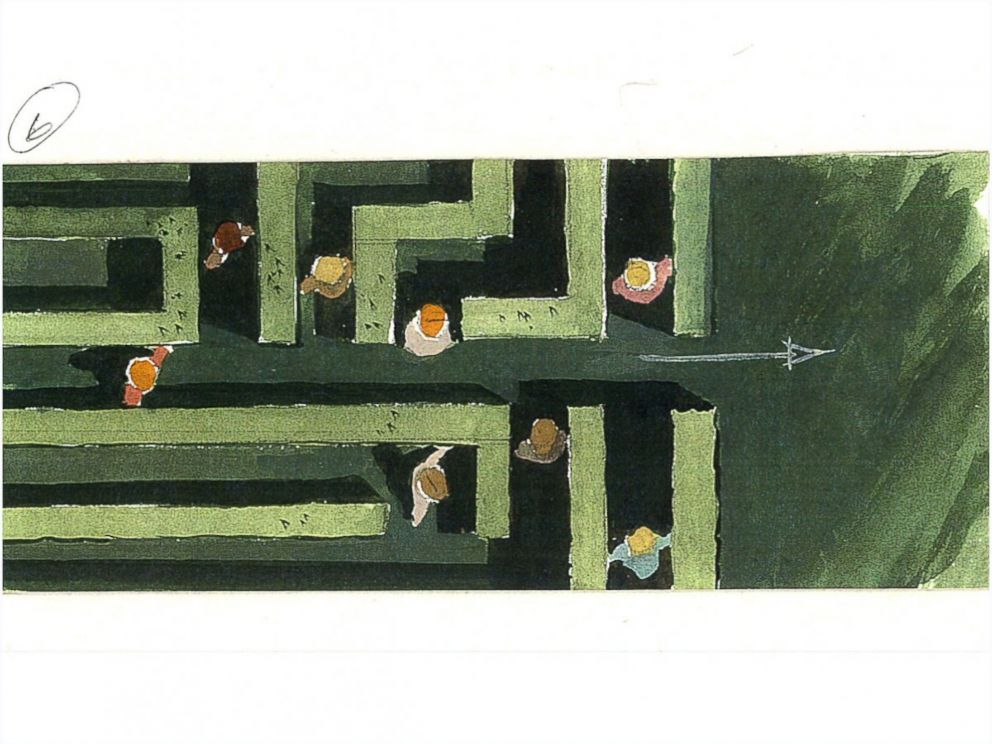
When performing “Do Re Mi” in the movie, Maria and the von Trapp
children were supposed to be seen running and singing through a garden
maze on the house grounds. Filmmakers even drew up storyboards of what
the scene would look like, and every single beat of music in the song
was timed exactly for the actors.
But in the end, the scene was scrapped.
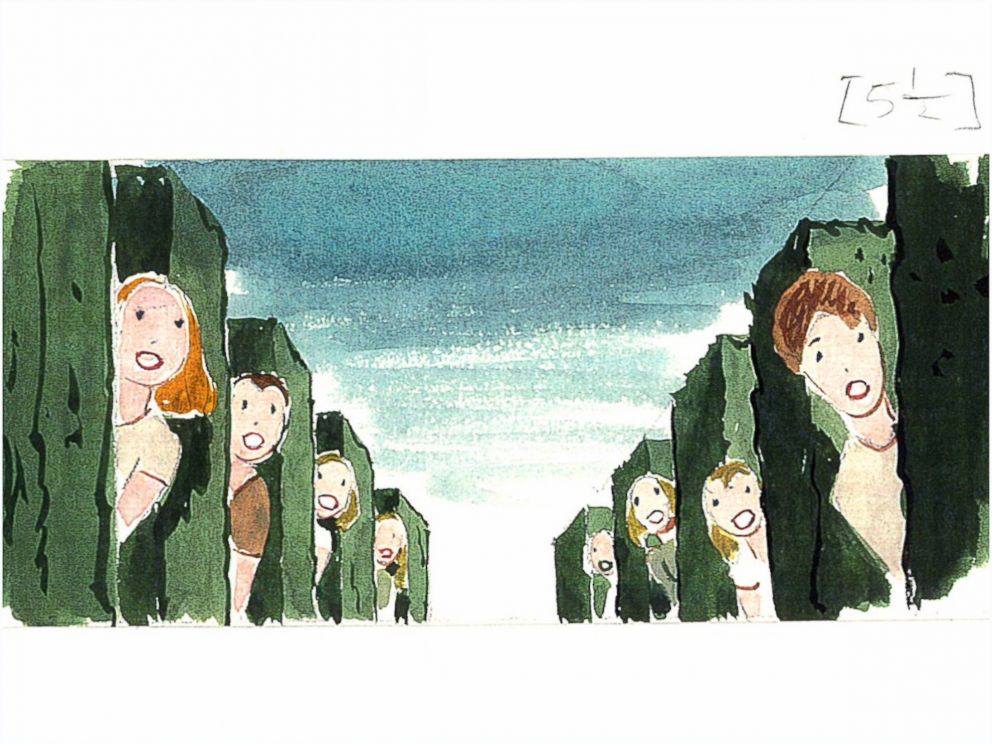
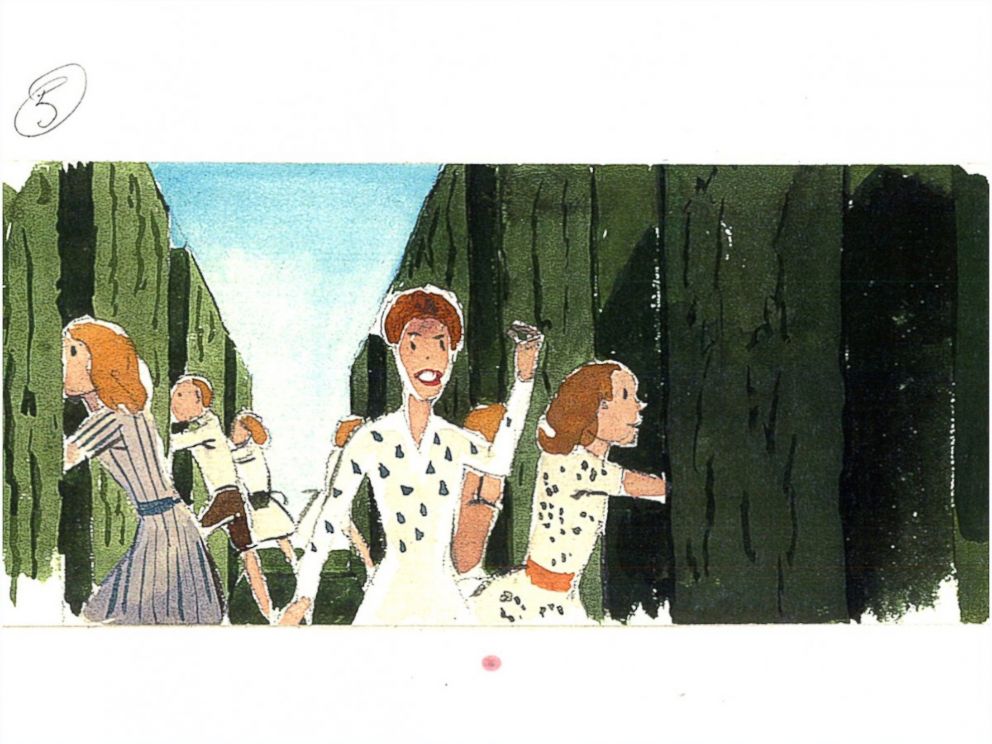
6. There Was Supposed to Be a Scene with Maria, Rolf and Liesl
According to Burt Fink, the Rodgers and Hammerstein company’s senior
vice president for Europe, there was a scene shot for the movie with
Maria, Rolf and Liesl together, but it was cut for time.
In the film’s current version, Maria never meets Rolf.
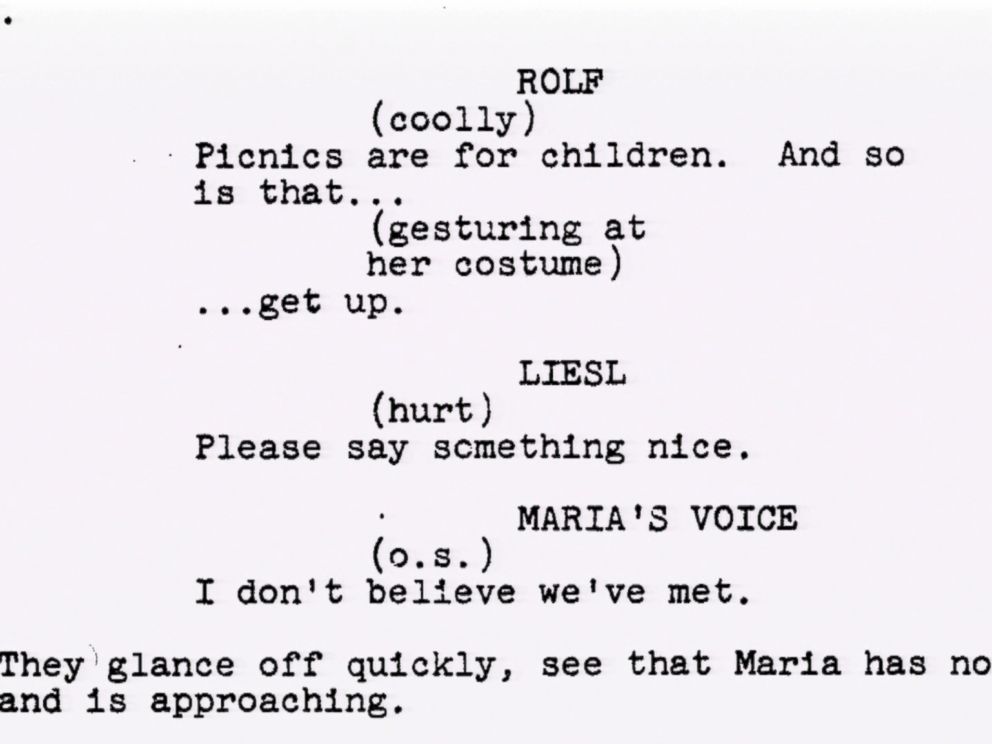
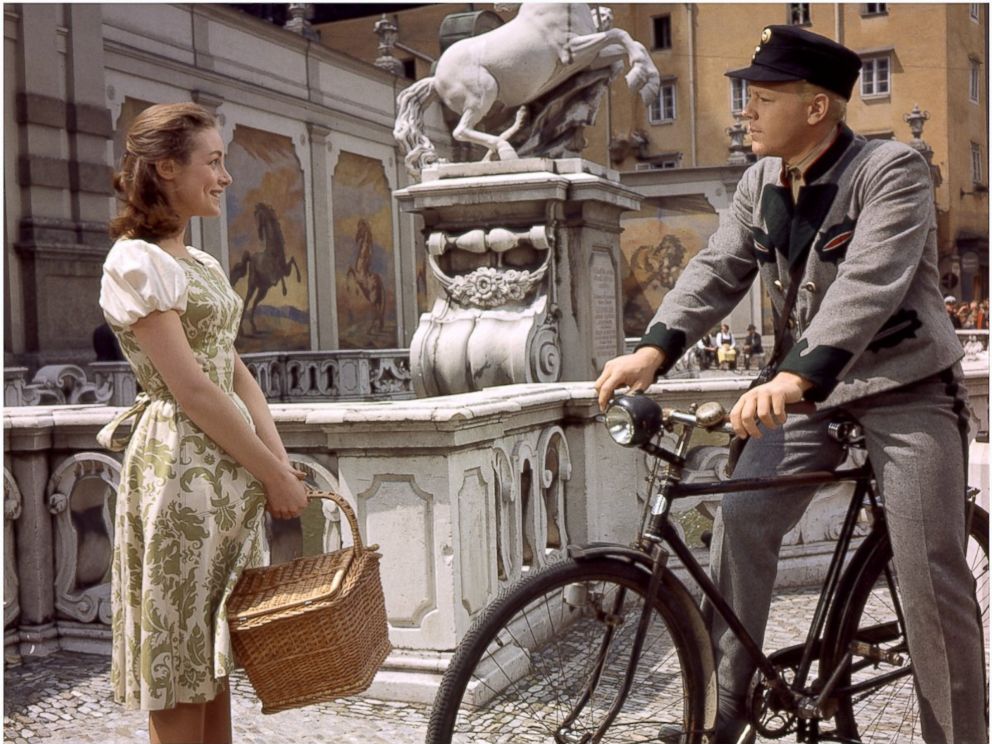
"The Sound of Music" full photo credit: THE SOUND OF MUSIC © 1965 Twentieth Century Fox Film Corporation and Argyle Enterprises. Renewed © 1993 Twentieth Century Fox Film Corporation and Argyle Enterprises. © 1998 Twentieth Century Fox Film Corporation and Robert E. Wise. All Rights Reserved

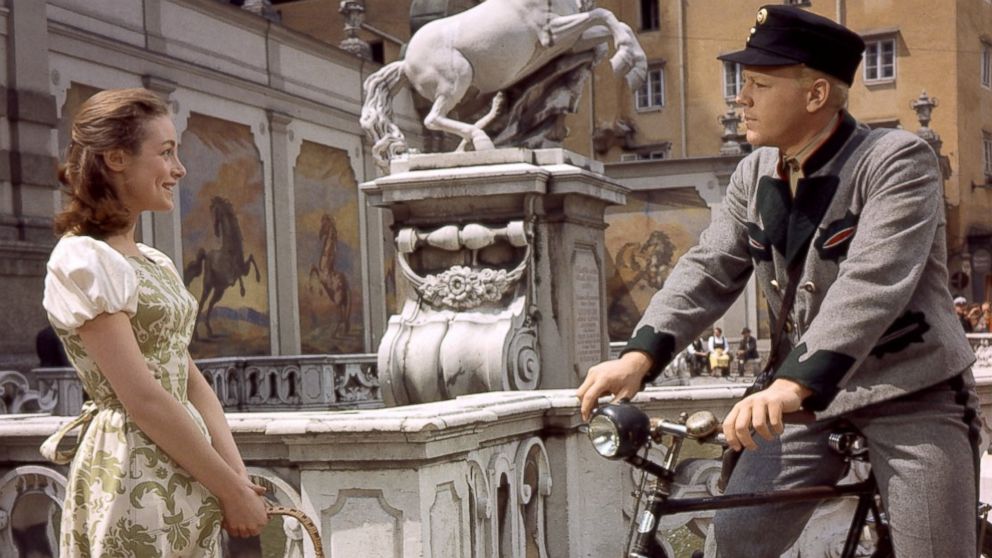
0 comments:
Post a Comment